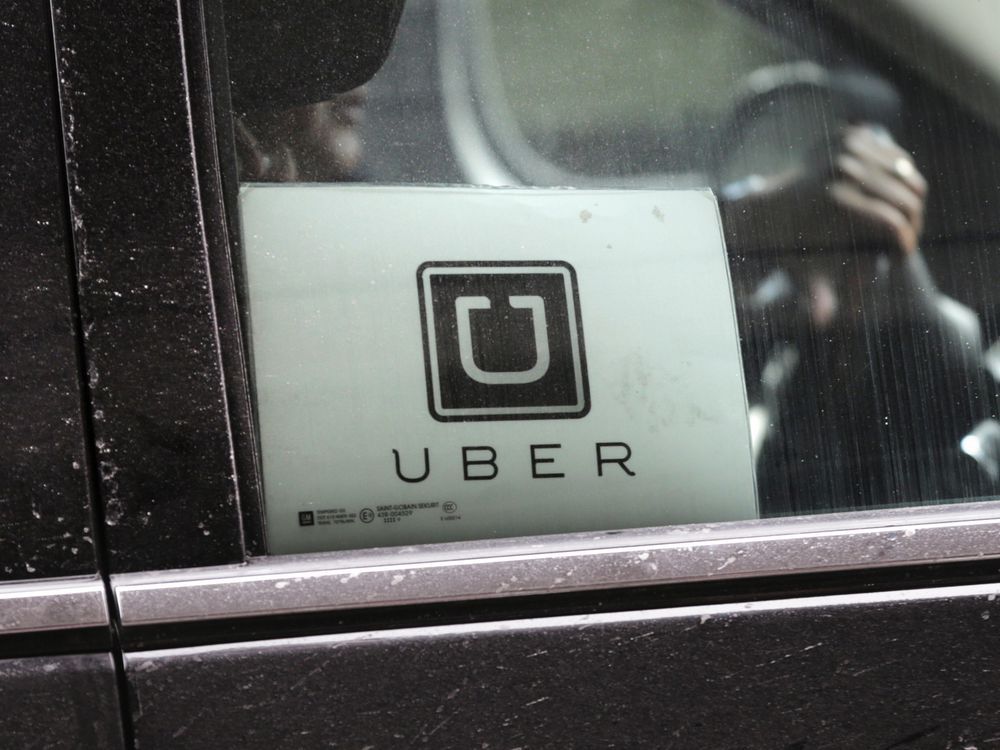Councils in Surrey, Vancouver support regional ride-hailing licence

Credit to Author: Jennifer Saltman| Date: Tue, 25 Feb 2020 22:55:27 +0000
Surrey and Vancouver are the first city councils in the Lower Mainland to approve a regional business licence for ride-hailing, which will allow companies such as Uber and Lyft to operate seamlessly across municipal boundaries.
The move comes as taxi companies renew their efforts to push the province to remove geographic boundaries that prevent taxis from picking up and dropping off passengers freely around Metro Vancouver.
There was no discussion at Surrey council on Monday when members unanimously approved the first three readings of a series of amendments to the city’s vehicle-for-hire and business licence bylaws, and the inter-municipal business licence.
Surrey Mayor Doug McCallum said in a news release that he was pleased with the amendments.
The inter-municipal licence will cost companies $155 each year, plus a per-vehicle fee of $150. The per-vehicle fee is reduced to $30 for zero-emission vehicles and waived for wheelchair-accessible vehicles. Licensing fees paid to municipalities before adoption of the regional licence will count toward the cost of the new licence.
Surrey reduced its licensing fees for taxi companies to match the ride-hailing fees, will allow cabs to travel in marked bus lames, and raised the maximum age for taxi vehicles from seven years to 10.
“We are doing what we can within the city’s jurisdiction to create equitable competition between taxis and ride-hailing companies,” McCallum said. “I will continue to advocate that the province and the Passenger Transportation Board do their part in supporting a fair competitive market for those employed in these industries.”
McCallum has on numerous occasions voiced his opposition to ride-hailing, because he believes the ride-hailing and taxi industries should be playing by the same rules. For almost two weeks after ride-hailing came to Metro Vancouver, Surrey issued tickets to Uber and its drivers for failing to have a city business licence.
McCallum announced at the Monday meeting that council decided that the city will not appeal the B.C. Supreme Court ruling that ordered the city not to issue fines to Uber or its drivers for operating in the city without a business licence, and won’t collect payment for the 60 tickets it did issue — 48 to drivers and 12 to Uber.
Vancouver’s unanimous inter-municipal licence approval came on Tuesday morning.
“These regulations will help us continue to monitor and minimize the impacts from ride-hailing vehicles on traffic and roads in our city,” said Mayor Kennedy Stewart in a news release.
Vancouver also has an existing measure to deal with congestion caused by ride-hailing. Companies with vehicles operating in the core of the city between 7 a.m. and 7 p.m. must pay 30 cents for each curbside pickup and dropoff. Fees are reduced or waived for zero-emissions and wheelchair-accessible vehicles.
The City of Vancouver will administer the interim regional licence program and will recover its costs through licensing fees. It is anticipated that administering the program will cost the city $140,000, including the creation of a half-time clerk position.
Any extra revenue will be shared by municipalities based on the number of pickups and dropoffs in their community.
Vancouver and Surrey are two of 25 local governments in the Lower Mainland and Sea-to-Sky regions that will bring the business licence before council by the end of March. Five local governments — Belcarra, Lillooet, Pemberton, Hope and Kent — and the Tsawwassen First Nation have decided against participating in the licence at this time. It is unclear whether Mission council will consider the licence.
It’s expected that the interim licence bylaw, which was drafted by municipal, provincial and TransLink staff, will go into effect on April 1 and a permanent bylaw will be in place by the end of this year. Until the interim licence is in place, companies will have to get business licences from municipalities, where applicable.
In an effort to stay competitive, taxi companies have partnered with the Surrey Board of Trade to launch a petition that will be available online until March 16. Then, it will be delivered to Minister of Transportation Claire Trevena.
“We want local taxi companies to compete with ride-hailing companies, but on a level playing field, without any boundaries. This is true economic action that will improve customer service,” said board CEO Anita Huberman.
Taxi companies outside of downtown Vancouver have spoken out in favour of removing municipal boundaries since ride-hailing rules were released last year, saying the boundaries result in dead-heading (returning from a trip empty), longer wait times, refused rides and lower income for drivers, plus they add to road congestion and greenhouse gas emissions.
“We are ready and willing, but unable to compete with Uber and Lyft because of debilitating red tape, which inhibits us and that is why we are launching this online petition today,” said Gurdip Sahota, general manager of Sunshine Cabs.
Members of the Vancouver Taxi Association, on the other hand, have expressed a desire to keep municipal boundaries, so they can protect their operating area.
On Tuesday, Trevena told reporters in Victoria that taxi boundaries is an issue for the Passenger Transportation Board. She said the independent board is aware of the concerns and will likely consider taxi boundaries once it sees how ride hailing evolves in the Lower Mainland, but did not speculate when that would happen.
“They are the ones who make decisions on boundaries and I’ll leave it to Passenger Transportation Board to make that decision,” she said.
— with files from Rob Shaw